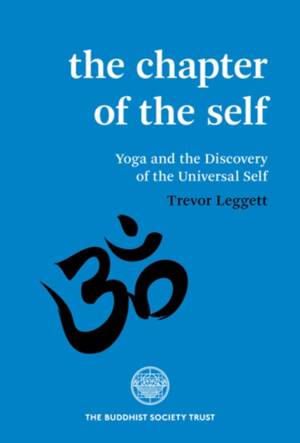
Door een staking bij bpost kan je online bestelling op dit moment iets langer onderweg zijn dan voorzien. Dringend iets nodig? Onze winkels ontvangen jou met open armen!
- Afhalen na 1 uur in een winkel met voorraad
- Gratis thuislevering in België vanaf € 30
- Ruim aanbod met 7 miljoen producten
Door een staking bij bpost kan je online bestelling op dit moment iets langer onderweg zijn dan voorzien. Dringend iets nodig? Onze winkels ontvangen jou met open armen!
- Afhalen na 1 uur in een winkel met voorraad
- Gratis thuislevering in België vanaf € 30
- Ruim aanbod met 7 miljoen producten
Zoeken
Omschrijving
The Chapter of the Self forms part of Apastambam, an ancient Indian Law-book dated from around 500 BCE. The main theme of this text is yoga as the means to the realization of the universal Self. The text is the subject of a commentary by Shankara, the 8th century sage. Shankara saw himself not as propounding a theoretical world-view, but as teaching a change of consciousness. His aim is to go beyond individuality, through realization of the ancient truths by means of yogic meditation. The first part of this book comprises the translation of The Chapter of the Self, and Shankara's commentary. In its second part, Trevor Leggett explores Shankara's yogic practices, and provides for the first time an English translation of Shankara's commentary. Many of the book's insights are drawn from Leggett's eighteen years of study with Dr. Hari Prasad Shastri, the renowned scholar and fully-realized Yogi. Leggett explores themes such as worship, training the mind, dream and sleep, and free action.
Specificaties
Betrokkenen
- Auteur(s):
- Uitgeverij:
Inhoud
- Aantal bladzijden:
- 176
- Taal:
- Engels
Eigenschappen
- Productcode (EAN):
- 9780901032522
- Verschijningsdatum:
- 7/05/2019
- Uitvoering:
- Paperback
- Formaat:
- Trade paperback (VS)
- Afmetingen:
- 127 mm x 193 mm
- Gewicht:
- 294 g

Alleen bij Standaard Boekhandel
+ 44 punten op je klantenkaart van Standaard Boekhandel
Beoordelingen
We publiceren alleen reviews die voldoen aan de voorwaarden voor reviews. Bekijk onze voorwaarden voor reviews.











